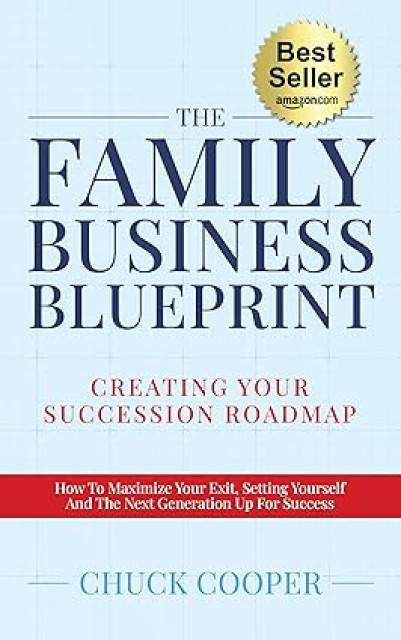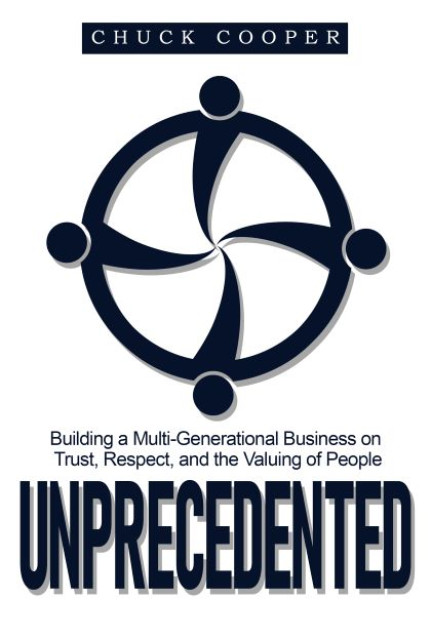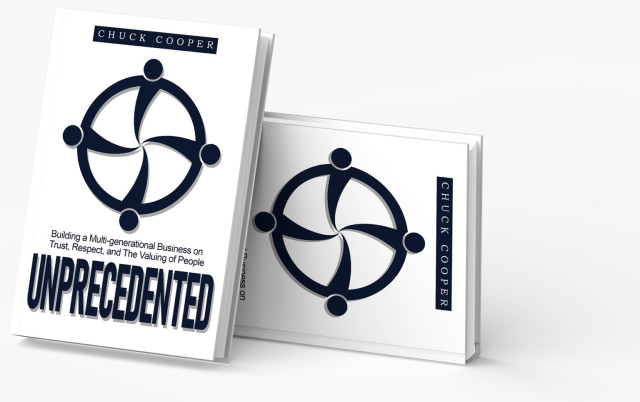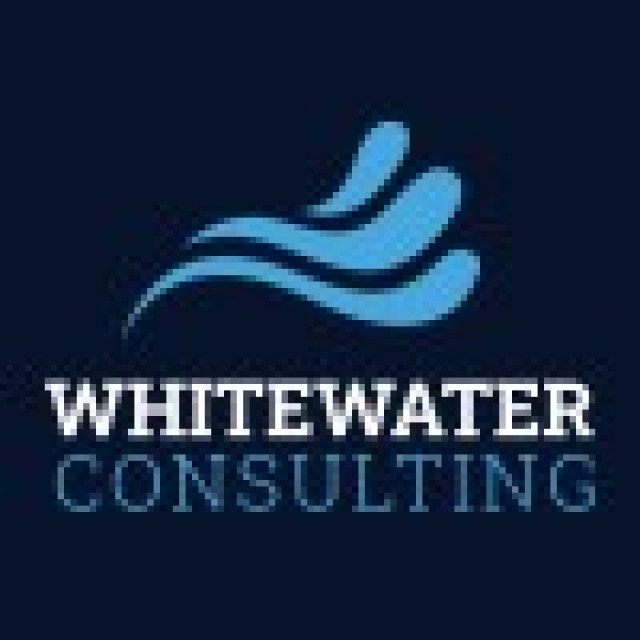

President & Founder at Whitewater Consulting LLC | Helping Business owners build a multi-generational business while balancing people +profit
Professionally --- As Managing Member at WhiteWater Consulting I am passionate about helping business owners navigate the world of HR. Through our consulting, education, analysis and solutions we eliminate the fear, uncertainty and doubt business owners have when it comes to solving their people problems.
Experience:
* 1999 - Present --- I have served as a HR consultant helping businesses with 10 - 500 employees determine which HR model is the best fit for their company culturally, organizationally, contractually and financially.
* I have helped companies build their internal HR teams, outsource their HR needs to PEO's and ASO's
* Helped organizations exit PEO relationships and bring HR services back in house
* Helped organizations develop processes for Recruiting, Applicant Tracking, Benefits Administration,
Payroll, Compensation Management and Performance Management
* There are times when I have to tell my clients that I am not the best resource for them; however, I will oftentimes use my LinkedIn network to identify who can be the best resource for my client and then connect them.
Personally --- My faith and family is everything to me. My greatest joy is being a husband, father and Papa.
Specialties: HR Consulting specializing in PEO & ASO, Comprehensive Employee Benefits, HCM Technology Solutions, Recruiting and Talent Acquisition, Payroll, HR Audit, Workforce Management, and Organizational Development
| Chuck Cooper | Points |
|---|---|
| Academic | 0 |
| Author | 200 |
| Influencer | 45 |
| Speaker | 0 |
| Entrepreneur | 40 |
| Total | 285 |
Points based upon Thinkers360 patent-pending algorithm.
 Creating a Succession Roadmap That Protects Both Family and Business Interests
Creating a Succession Roadmap That Protects Both Family and Business Interests
Tags: HR, Leadership, Management
 How PEOs Help Businesses Scale Without HR Growing Pains
How PEOs Help Businesses Scale Without HR Growing Pains
Tags: HR, Leadership, Management
 Governance Structures That Support Smooth Family Business Transitions
Governance Structures That Support Smooth Family Business Transitions
Tags: HR, Leadership, Management
 From Hiring to Termination: How PEOs Manage the Full Employee Lifecycle
From Hiring to Termination: How PEOs Manage the Full Employee Lifecycle
Tags: HR, Leadership, Management
 Be Ready When Opportunity Knocks: Why Due Diligence Preparation Matters in Business Transitions
Be Ready When Opportunity Knocks: Why Due Diligence Preparation Matters in Business Transitions
Tags: HR, Leadership, Management
 Preparing People for Change: HR’s Role in Succession-Related Communication
Preparing People for Change: HR’s Role in Succession-Related Communication
Tags: HR, Leadership, Management
 Exit Planning vs. Succession Planning: Understanding the Difference
Exit Planning vs. Succession Planning: Understanding the Difference
Tags: Business Continuity, Business Strategy
 Why Early Succession Planning is Key to Long-Term Business Success
Why Early Succession Planning is Key to Long-Term Business Success
Tags: HR, Leadership, Management
 Creating a Legacy: How Succession Planning and Modern HR Strategies Can Shape Your Organization's Future
Creating a Legacy: How Succession Planning and Modern HR Strategies Can Shape Your Organization's Future
Tags: HR, Leadership, Management
 How to Address Conflict During Succession Planning Discussions
How to Address Conflict During Succession Planning Discussions
Tags: HR, Leadership, Management
 HR Strategies for Managing Multigenerational Workforces
HR Strategies for Managing Multigenerational Workforces
Tags: HR, Leadership, Management
 Succession Planning for Family Businesses
Succession Planning for Family Businesses
Tags: HR, Management
 Create a Culture of Employee Engagement
Create a Culture of Employee Engagement
Tags: HR, Management, Culture
 Leadership Unveiled: Fostering Trust with the 5 C’s
Leadership Unveiled: Fostering Trust with the 5 C’s
Tags: HR, Management
 The Family Business Blueprint
The Family Business Blueprint
Tags: HR, Leadership, Management
 Unprecedented: Building a Multi-Generational Business on Trust, Respect and the Valuing of People
Unprecedented: Building a Multi-Generational Business on Trust, Respect and the Valuing of People
Tags: HR, Leadership, Startups
 UNPRECEDENTED
UNPRECEDENTED
Tags: HR, Leadership, Management
Tags: HR, Leadership, Startups
 Whitewater Consulting LLC
Whitewater Consulting LLC
Tags: HR, Management, GRC
Tags: Entrepreneurship, HR, Mergers and Acquisitions
 Governance Structures That Support Smooth Family Business Transitions
Governance Structures That Support Smooth Family Business Transitions
Family businesses are unique in many ways. They often blend personal legacy with professional responsibility, balancing family values with the realities of market competition. While these qualities can create a strong foundation, they can also complicate business transitions—particularly when leadership passes from one generation to the next.
The key to ensuring stability and minimizing conflict during these critical moments lies in one thing: strong governance structures.
Well-designed governance helps clarify decision-making, maintain family harmony, and protect the company’s long-term future. Let’s explore three governance structures that play an essential role in supporting smooth family business transitions.
One of the most effective ways to prepare for transition is by establishing a governing board that provides oversight and accountability.
Both structures offer the benefit of an outside perspective. Independent members can bring objectivity to discussions about succession, strategy, and growth, helping to balance family emotions with business needs. Additionally, boards encourage accountability by holding leaders to clearly defined goals and standards.
Family councils act as forums where family members can discuss values, vision, and expectations for the business without disrupting daily operations. These councils provide space for candid dialogue and help ensure that all voices are heard, even if not all family members are directly involved in the company.
Complementing the council is the family business constitution, a written document that outlines principles, rules, and expectations.
This might include:
When clearly defined, these mechanisms reduce misunderstandings and prevent disputes from spilling into the business. By aligning family members around shared values, councils and constitutions create stability during times of change.
Succession is one of the most sensitive issues in family businesses. Without a clear plan, leadership transitions can create tension—or worse, derail the company entirely. A succession committee provides a structured way to manage this process.
These committees typically include:
The committee’s role is to identify and prepare next-generation leaders, create timelines for transition, and ensure accountability at every step. Pairing this with a formal transition framework—a roadmap that outlines roles, responsibilities, and milestones—ensures transparency for the entire family and organization.
Succession committees also play a critical role in developing the next generation. By identifying leadership gaps early and recommending targeted development opportunities, they ensure that successors are prepared not only to inherit a title but to thrive in the role.
Without governance, family business transitions can easily become clouded by personal dynamics and emotional decisions. But when governance structures are in place, they provide clarity, reduce risk, and ensure that decisions are made in the best interests of both the family and the business.
Strong governance structures:
Smooth transitions in family businesses don’t happen by chance.
They’re the product of intentional governance—boards that bring objectivity, councils that foster communication, and committees that guide succession. By establishing these structures, family enterprises can safeguard both their legacy and long-term success.
At WhiteWater Consulting, we help family businesses design and implement governance systems that align with their unique values and strategic goals. Whether you’re planning for the next generation or navigating a current transition, our team is here to guide you through the process with clarity and confidence.
Ready to strengthen your family business governance? Contact WhiteWater Consulting today to start building the foundation for a seamless transition.
Tags: Entrepreneurship, Leadership, Management
 Preparing People for Change: HR’s Role in Succession-Related Communication
Preparing People for Change: HR’s Role in Succession-Related Communication
Leadership transitions are among the most significant—and often most stressful—periods in an organization's life. Whether planned well in advance or triggered by unexpected events, succession impacts every layer of a company. While much of the focus often falls on identifying the right successor or developing strategic transition plans, one key element often overlooked is communication. Specifically, HR’s role in guiding succession-related communication can be the difference between a smooth transition and one marked by uncertainty, confusion, or internal resistance.
Why Communication Matters During Succession
Leadership changes naturally create unease. Employees may wonder about their job security, the company’s future direction, or changes to team dynamics and responsibilities. Without clear, timely, and transparent communication, rumors fill the void, morale dips, and productivity suffers.
This is where HR’s strategic value comes into play. HR professionals are uniquely positioned to shape the narrative, confirm alignment, and support people through change. From messaging to coaching, HR bridges the gap between leadership intent and employee perception.
HR’s Role in Succession Communication
1. Developing a Communication Strategy
Before making any announcements, HR should help develop a communication strategy that aligns with the company’s values and culture. Key elements of this strategy include:
A thoughtful strategy ensures consistency in messaging and helps mitigate miscommunication at all levels.
2. Preparing Leaders and Managers
Mid-level managers are often the first line of defense when employees have concerns or questions. HR should proactively equip these managers with talking points, context, and coaching to help them confidently address their teams.
Succession-related changes may also involve shifts in reporting structures, performance expectations, or cultural dynamics. HR can facilitate training or workshops to help leaders adapt their management styles, build trust with new team members, and demonstrate harmony with the incoming leadership.
3. Promoting Transparency and Trust
One of the biggest concerns employees have during a leadership transition is the unknown. HR’s role is to promote transparency wherever possible, while also respecting confidentiality and strategic timing.
Communicating the “why” behind the succession—whether it’s part of long-term growth planning, retirement, or restructuring—can go a long way in reinforcing organizational stability. HR should encourage leaders to acknowledge employee concerns honestly and provide opportunities for feedback and two-way communication.
4. Addressing Emotional Impact and Organizational Culture
Succession can trigger a range of emotions—from anxiety to grief to excitement. This is especially true when a long-tenured or well-loved leader steps down. HR must recognize these emotions and ensure that transition plans address both cultural continuity and operational effectiveness.
Consider offering:
These actions not only support individuals through change but also reinforce a healthy organizational culture.
5. Evaluating and Adjusting Post-Transition
Once the new leader has stepped in, HR’s job is far from over. Ongoing communication is essential to reinforce new goals, clarify roles, and track engagement and morale. HR can gather feedback through pulse surveys or informal check-ins, identify challenges early, and help adjust messaging or support mechanisms as needed.
Additionally, HR should monitor how well the new leader is being integrated, both operationally and culturally. A successful transition is one where business performance and employee engagement remain strong or improves over time.
Success is a Leadership and a People Issue
HR plays a pivotal role in helping organizations navigate leadership change with clarity, empathy, and resilience. By proactively managing succession-related communication, HR ensures employees stay informed, engaged, and prepared for what’s next.
If your organization is preparing for a leadership transition, WhiteWater Consulting can help you build a communication strategy that strengthens trust and sets your people—and your future leaders—up for success.
Tags: Leadership, HR
 Leadership Unveiled: Fostering Trust with the 5 C’s
Leadership Unveiled: Fostering Trust with the 5 C’s
In the fast-paced landscape of today's organizations, the missing link that often separates successful ventures from mediocre ones is trust. Trust is the glue that binds leaders with their stakeholders, creating an environment where collaboration thrives, innovation flourishes, and everyone feels valued. To bridge this trust gap, we propose a formula that encapsulates the essence of effective leadership—the 5 C’s of Leadership.
At the core of the 5 C’s lies communication, the bedrock upon which trust is built. It goes beyond merely transmitting information; effective communication involves active listening to understand and speaking to be understood. Leaders must foster an environment where every voice is heard, creating a sense of openness and transparency. When communication flows freely, trust is nurtured, and stakeholders feel a genuine connection with the leadership.
Connection is the second pillar, urging leaders to step out of their offices and immerse themselves in the daily rhythm of the organization. It involves spending quality time with team members, being present when they start their day, and showing appreciation at the day’s end. But connection extends beyond internal teams—it encompasses engaging with customers, vendors, and community leaders. By sharing the organization's mission, vision, and values, leaders build bridges that connect diverse stakeholders, fostering a sense of unity and common purpose.
Commitment is the anchor that prevents leadership from drifting into uncertainty. Leaders must be steadfast in their dedication to the company's mission, vision, and values. This commitment goes beyond lip service; it involves actively shaping and building the organizational culture. When stakeholders witness leaders unwaveringly dedicated to a common goal, trust is solidified, creating a stable foundation for growth and collaboration.
Care is the empathetic thread that weaves through the fabric of trust. Leaders must genuinely care for their people, recognizing them as individuals with unique needs and aspirations. This involves not only professional development but also a focus on the overall well-being of the team. By demonstrating genuine concern for the individuals within the organization, leaders cultivate a culture of trust, where each person feels valued and supported.
Remaining curious is the fuel that propels a leader's journey towards growth and success. Acknowledging that there is always more to learn, leaders should invest time in asking questions, seeking different perspectives, and gathering input from diverse sources. This curiosity leads to a more robust decision-making process and better outcomes. Embracing a mindset of continuous learning not only inspires trust but also fosters an environment of innovation and adaptability.
Incorporating these 5 C’s into leadership practices provides a comprehensive roadmap for building and maintaining trust with stakeholders. It is not a one-time effort but an ongoing commitment to fostering a culture of trust, openness, and collaboration.
As leaders strive to implement these principles, they will witness the transformational impact on organizational dynamics. Trust becomes the catalyst for enhanced teamwork, increased productivity, and a shared commitment to achieving common goals. In an era where trust is often a scarce commodity, leaders who embrace the 5 C’s will stand out as beacons of authenticity and reliability, guiding their organizations toward sustained success and growth.
Tags: Business Strategy, Culture, Leadership
Location: Virtual Fees: $0
Service Type: Service Offered
 Creating a Succession Roadmap That Protects Both Family and Business Interests
Creating a Succession Roadmap That Protects Both Family and Business Interests The Hidden Costs of Not Having Professional HR Support
The Hidden Costs of Not Having Professional HR Support From Chaos to Clarity: Mastering The Family Business Exit
From Chaos to Clarity: Mastering The Family Business Exit